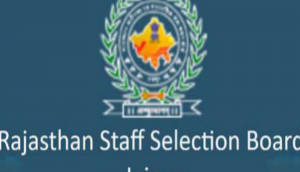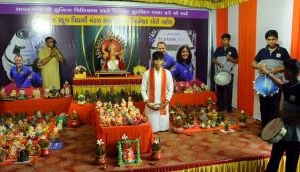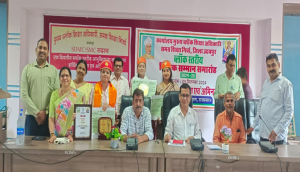
Smriti Irani-led Ministry of Human Resource Development (MHRD) has just released a mammoth report, enlisting all the reforms undertaken by the ministry in the last two years.
The document called - 'Reforms Undertaken By The Ministry of Human Resource Development' - is like a fact sheet, that talks about all the good reforms and initiatives introduced by the ministry.
The report, released on 25 May, focuses on:
1. Policy Streamlining
2. Harnessing Technology
3. Public/Student/Outreach - Making Education Relevant
4. Holistic Approach
5. Participative Approach
6. Human Resource Enrichment
Here's a quick look on the top 20 aspects mentioned by Irani's ministry:
1. New Education Policy (NEP):
The MHRD will soon launch the NEP, which is based on a consultative process. The ministry reached out to individuals across the country through over 2.75 lakh direct consultations while also taking online inputs. Nearly 29000 suggestions were received on the 33 identified themes. The NEP is expected to be released tomorrow.
2. National Institutional Ranking Framework (NIRF) -
Ranks of institutions in Engineering, Management, Pharmaceutical, Architecture, Humanities, Law streams and for Universities as a whole. The first ranks were declared on 4th April 2016. More than 3,500 institutions have participated in the exercise, making it the highest participated ranking exercise in the World.
3. Implementation of Joint counseling for the first time for admission of students in various undergraduate programmes of IITs, ISM, NITs, IIITs and other CFTIs/GFTIs, thus doing away with multiplicity of counseling sessions per student. Number of vacant seats has been drastically reduced from 23% to less than 1%. Candidates who did not join after allotment of seats, have also been refunded the fees paid to JoSAA / CSAB during the counseling process.
4. Government's decision to provide free education to SC/ST/PH and differently abled students in the IITs; Special fee schemes for economically-backward students
5. New University Grants Commission (UGC) initiatives such as modification in Academic Performance Indicator (API) scheme, PH.D- NET qualification for entry of teachers, new rules for deemed universities, etc.
6. National Council of Education and Research Training (NCERT) Initiatives
- National Achievement Surveys (NAS)to be conducted annually for all States and UTs covering all classes (I-VIII) as well as subjects at the elementary stage.
- Launch of e-Pathshala where NCERT will provide its resources for free on the web and mobile platforms. Resources includes e-books from Classes I to XII and other e-contents such as audio, video, interactive objects, etc.
7.Online admissions being initiated in all Central Universities from next academic sessions. In-service PhDs will be recognized for promotions of teachers.
8. Launch of Know Your College Portal to support students take decisions related to admission in an informed manner.
9. Kendriya Vidyalaya (KV) Initiatives:
One of the MHRD initiatives introduced was KV Shaala Darpan, an ERP platform for 1100+ schools to enhance academic delivery and improving overall quality of education. The details of daily attendance, performance, profile etc of the students can be seen by the parent, student, teacher, Principal and KVS HQ online.
10. Central Board of Secondary Education (CBSE) Initiatives:
- Digital India Programme, part of PM's flagship Digital India Program, the CBSE shared data in required formats with the nodal agencies of Digital Locker, National Scholarship Portal and DGET Portal.
- e-CBSE Portal: Collection of CBSE Books in Electronic Format - Easy availability of CBSE publications for all stakeholders of the Board anytime, anywhere and free of cost.
- Digitalization of Practical Exam, Online Internal Assessment Grades Collection System, Online Application System for Private Candidates, Online Pre-Examination System for Competitive Examinations
- Availability of images of OMR sheets, response challenge system, display of answer key since May, 2014 and 'key challenges' and the response sheets of online examination have been also made available online.
-Conducting Computer Based Test across the country and abroad: CBT introduced in JEE (main) Examination which covered only 30 cities in 2012 was expanded to cover 283 cities in 2014 and 2015.
11. Under the Unnat Bharat Abhiyan all technical and higher education institutions have been asked to adopt five villages each, identify technology gaps and prepare plans for innovations that could substantially increase the income and growth in rural areas. 125 villages have been adopted by the IITs. IIT Delhi has been made the national coordinator.
12. For the first time, a Yoga Education Committee has been formed to work towards developing Regulations and Norms and Standards for D.El.Ed. (Yoga Education) and B. Ed (Yoga Education) to bring out specialised school teachers in Yoga education.
13. Under The Swacch Vidayalaya Initiative, 4,17,796 toilets were constructed in 2,61,200 elementary and secondary schools in a period of one year from 15.08.14 to 15.08.15 thus providing separate toilets for girls and boys in every government school.
14. Introduction of various Diwas/Days
- Rashtriya Ekta Diwas (National Unity Day)
- Constitution Day
- Matribhasha Diwas
15. Global Initiative for Academic Networks (GIAN) programme has been started to facilitate partnerships between Higher Education Institutions of India with those around the world and it is an attempt to improving the standards of education by collaboration with academicians from across the World. So far, 1236 proposals have been made by the foreign faculty from 58 Countries. Of this (478) courses have been sanctioned.
16. Director General UNESCO and the MHRD signed a joint statement to acknowledge the works of Srinivasa Ramanujan, his contribution to mathematical analysis, number theory and continued fractions and the contribution of Aryabhata.
17. Major IITs have embarked upon setting up of research parks which could incubate start-ups and hand-hold them till they reach the stage of commercialization, normally for a period of five years. IIT Madras Research Park has already functional, while IIT Kharagpur and IIT Bombay parks will launch soon. Two more Research Parks have been sanctioned at IIT Gandhinagar and IIT Hyderabad. Apart from this (16) new Technology Business Incubators and (10) Start up centers are being set up in various NITs and IIMs.
18. Introduction of Choice Based Credit System (CBCS) in all Indian Universities and "guidelines issued by UGC allowing for seamless mobility of students across the Indian Universities similar system of evaluation in all universities with uniform syllabus to the extent of 70% in Undergraduate courses, syllabus designed for 107 undergraduate course have been uploaded on UGC website."
19. Granting Special Heritage Status to Universities and Colleges to universities and colleges who have been in existence for 100 years and more.
20. Udaan - Giving Wings to Girl Students: To address the teaching gap between school education and engineering entrance and to improve the teaching and learning of Science and Mathematics at school level, the CBSE will provide free online resources to girl students of Class XI and XII to prepare for admission test for the premier engineering colleges in the country. In this girls from families whose annual family income is less than Rs 6 lakh are eligible.







![BJP's Kapil Mishra recreates Shankar Mahadevan’s ‘Breathless’ song to highlight Delhi pollution [WATCH] BJP's Kapil Mishra recreates Shankar Mahadevan’s ‘Breathless’ song to highlight Delhi pollution [WATCH]](https://images.catchnews.com/upload/2022/11/03/kapil-mishra_240884_300x172.png)

![Anupam Kher shares pictures of his toned body on 67th birthday [MUST SEE] Anupam Kher shares pictures of his toned body on 67th birthday [MUST SEE]](https://images.catchnews.com/upload/2022/03/07/Anupam_kher_231145_300x172.jpg)






